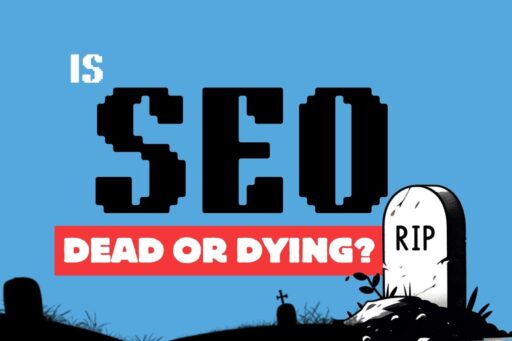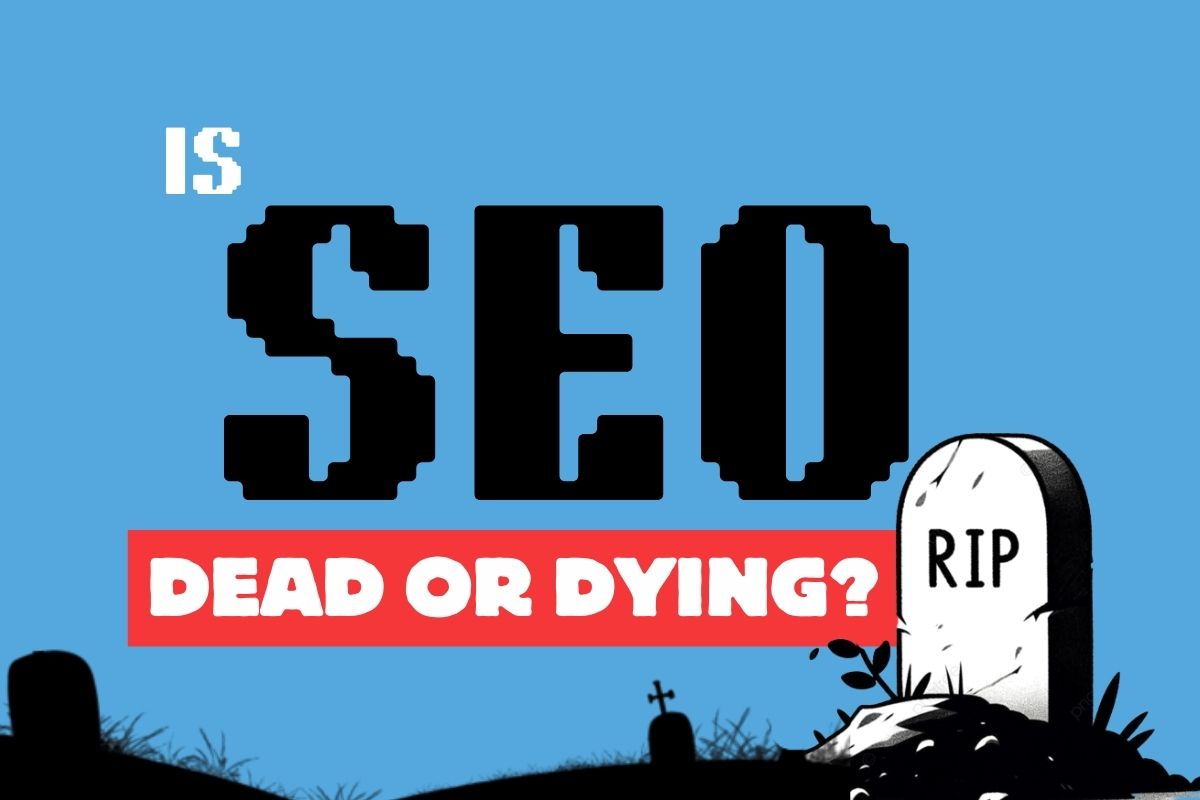For a long time, businesses have used SEO to attract more visitors and rank high on Google. But now, with AI-driven search, voice assistants, and constant algorithm updates, many people say that it doesn’t matter anymore.
Is SEO dead? That’s not true. SEO isn’t dead, it’s just changing. The old tricks? Keyword stuffing, spammy backlinks? Those don’t work anymore. Now, it is about creating high-quality, intent-driven content, improving technical performance, and adapting to new search technologies.
In this article, we’ll look into the current state of SEO, clear up some common misconceptions, and highlight the biggest trends shaping its future.
How SEO Has Changed
Here’s how things have shifted over time:
1. From Quantity to Quality in Backlinks
Backlinks still matter, but not like before. It’s not about getting as many backlinks as possible anymore. Search engines prioritize where those links come from. A few authoritative, relevant links from trusted websites can be way more powerful than a ton of random ones.
2. From Keywords to User Intent
Back in the day, SEO was all about cramming as many keywords into a page as possible. But search engines got smarter. Now, Google looks at what people actually mean when they search. It’s not just about using the right keywords – it’s about answering questions in a way that makes sense.
3. From Desktop to Mobile-First Indexing
With the majority of users now browsing on mobile devices, Google has prioritized mobile-first indexing. If a site doesn’t work well on a small screen, it’s probably not going to rank well. Fast loading speeds, responsive design, and seamless navigation are no longer just advantages, they are essential for strong search performance.
4. From Text to Multimedia Content
SEO used to be about blog posts and web pages filled with text. Now, videos, images, podcasts, and interactive content are all equally important. People search on YouTube, look at Google Images, and engage with visuals – so businesses have to optimize for more than just words.
5. From Basic Technical SEO to Advanced Metrics
Technical SEO has become increasingly sophisticated, with factors like loading speed, security, and page stability. To remain competitive, websites must deliver a fast, secure, and seamless user experience.
Debunking the Myths: Why SEO Still Matters
Despite constant changes in digital marketing, some believe it is becoming obsolete. Let’s clear up a few common misconceptions:
“AI Is Taking Over SEO”
Yes, AI tools like RankBrain and BERT have changed how search engines work. But that doesn’t mean it is dead. Instead, they push marketers to focus on high-quality, intent-driven content.
“Paid Ads Work Better than Organic Search”
While paid ads can generate quick traffic, SEO remains one of the most cost-effective long-term strategies. Businesses that put effort into SEO often see steady, long-term results – without having to pay for ads constantly.
“Social Media Eliminates the Need for SEO”
Social platforms help people discover brands, but they don’t replace search engines. When people need answers or are about to make a purchase, they’re still typing into Google.
“Voice Search Is Making SEO Obsolete”
Voice search is changing how people search, but it doesn’t eliminate SEO – it just refines it. Optimizing for conversational language and long-tail keywords is now more important than ever.
What’s Next for SEO? Trends You Can’t Ignore
SEO isn’t what it used to be, and it’s still shifting. Here’s what’s shaping the future:
AI is Taking Over Search Algorithms
Search engines are getting smarter. Google’s RankBrain and BERT help process natural language, figuring out what users actually mean. The focus now? Content that’s natural, relevant, and truly answers questions.
Voice Search is Growing Fast
People aren’t just typing anymore. Smart speakers, voice assistants – search is becoming more conversational. That means targeting full phrases, not just keywords. Think of how people talk, not just what they type.
User Experience is a Bigger Deal than Ever
Google wants users to have a smooth experience including metrics like loading speed, interactivity, and visual stability. If a site feels clunky or slow, rankings will take a hit.
Trust and Authority Matter More
Google values trustworthy content, especially in fields like finance, healthcare, and law. Quality beats quantity. Well-researched, well-written content from reputable sources is what helps the most.
Videos & Images are Changing SEO
YouTube is basically its own search engine now. Video content is growing fast, and optimizing descriptions, transcripts, and titles is crucial. Additionally, visual search – like Google Lens – is making images just as searchable as text.
Zero-Click Searches are on the Rise
Nowadays, answers are appearing right in front of Google’s search page. No need to click. Featured snippets, instant answers – they take up space where regular websites used to rank. To stay visible, content needs to be structured for those top search placements.
SEO Strategies that Really Work
To stay visible, smart SEO strategies are a must. Here’s how to stay up-to-date:
Make Content that Matches User Intent
Search engines care more about why people search, not just what they type. Answer public queries. Look at Google’s “People Also Ask” section. See what users are curious about – then create content that is clear and useful.
Use AI to Work Smarter
AI-powered SEO tools can simplify research, improve content, and track performance. They help spot trends, find better keywords, and optimize pages without endless guesswork.
Get Serious About Local SEO
Businesses that serve specific areas need to show up in local searches. Keep Google My Business updated, encourage customer reviews, and include location-based keywords. Local visibility can drive real-world traffic.
Conclusion
SEO isn’t dead – it’s just changing. The old tricks might not work anymore, but new approaches are opening up new possibilities. It isn’t something you set and forget. It’s a field that keeps moving, forcing marketers to adapt. The goal isn’t just to keep it alive – it’s to push it forward, shaping the future of digital marketing.
Frequently Asked Questions
1. Will AI completely take over SEO in a few years?
Not quite. AI is getting better at understanding searches, but SEO still needs human creativity. Content has to feel real, useful, and match what users actually need.
2. If social media brings traffic, do I still need SEO?
Yes! Social media helps, but search engines bring in users actively looking for something. SEO makes sure your content shows up when people need it.
3. What’s schema markup, and does it really matter?
Schema markup helps search engines understand content better, leading to rich snippets, improved rankings, and higher click-through rates.
4. Can small businesses compete with big brands?
Absolutely. Big companies have money, but small businesses can win by focusing on local SEO, niche topics, and making content super helpful.
5. Are backlinks still important, or are they outdated?
They still matter, but spammy links don’t work anymore. Getting high-quality, trusted sites to link to you is way more valuable now.







